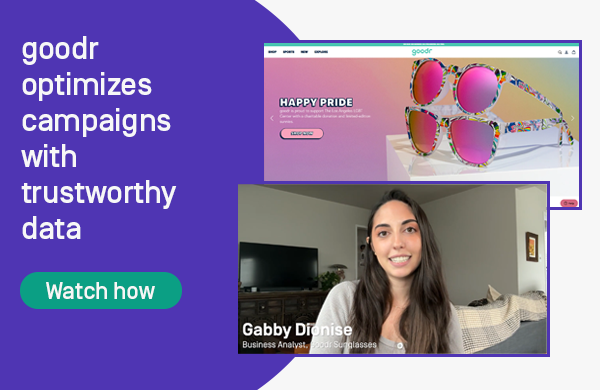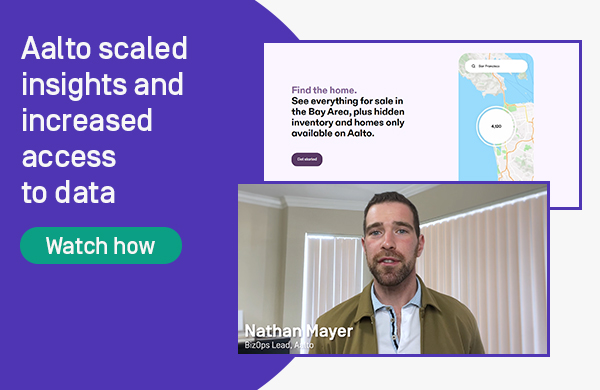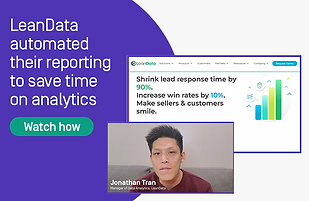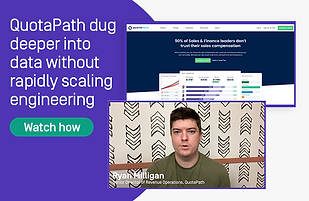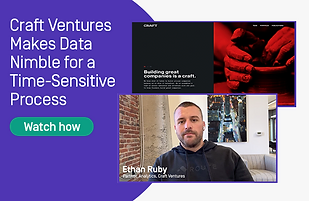Learn how data-driven companies are achieving their goals with Mozart’s modern data platform
Focus: E-Commerce, Analytics
“We're able to redefine success in a lot of additional ways that we weren't able to do before when we were just looking at sales numbers.” — Gabby Dionise, Business Analyst, goodr
Focus: Business Operations, Real Estate, Analytics
“If you were going to build a data strategy from scratch, using Mozart makes it easy to implement. Getting thought leadership from Mozart sets you in the right direction. If I was a brand new startup and I was at the point of developing a data strategy, Mozart is a no-brainer.” - Nathan Mayer, BizOps
Focus: Analytics, Sales
"There's a huge number of people that benefit from Mozart daily, but they're not necessarily in the tool. We have a weekly report that goes out to leadership that's built through Tableau, and that report is ultimately powered by Mozart data. So you know, the transforms run every day and then Tableau is repopulated and those reports are emailed out to whoever needs to see them." - Jonathan Tran, Manager of Data Analytics
Focus: RevOps
“Mozart made it super accessible for somebody who's slightly technical enough to write SQL and build dashboards, but not somebody who really wants to maintain a full-fledged ETL layer myself or stand up a data warehouse myself." - Ryan Milligan, Senior Director of Revenue Operations
Focus: Finance, Analytics
“Before using Mozart it was a super manual process. We’d get data from all these different sources, we would download them as CSVs, and we’d try to manually combine them to try to get insights across all of them.” - Ethan Ruby, Partner, Analytics
Focus: Product, Finance
“We were unable to answer questions that required data from different places. The alternative [to a modern data stack] would be writing these runtime queries in our BI tool, which is expensive, and also messy to do, because they’re hard to build upon.”- Matt Marcus, Co-Founder and Chief Product Officer at Modern Treasury
Focus: Operations, Analytics
“We wouldn’t have been able to build these dashboards if not all the data was centralized and organized. That was our first win as a team.” - Dan Cho, Senior Director of Operations at Tempo
Focus: RevOps, Operations
“Once you build the infrastructure, you can create a self-serve data culture by educating teams on how to ask a good question and answer it themselves. It’s critical to not just rely on the data team to do the work.” - Alex Netsch, Director of RevOps at Rippling
Focus: Growth Marketing
“If you believe Marketing is responsible for full-cycle sales, you need to have a ton of fluency in your data, to be able to know who are the people signing up, what are they doing in the application, what package did they buy, when are they going to renew, and so on.” - Jason Feng, Director of Growth Marketing at Zeplin
